Toffee Apple Cake and Discover Organic Review
Whether or not we buy organic food seems to be a question capable of sparking huge debate. We know that organic food is better for us, but can we justify buying organic food when shopping bills are rising sharply? Is it a luxury to buy organic? Are most of us buying basics ranges? If we buy locally produced food is this the same as buying organic?
Looking at my own shopping habits, if I’m honest, you will probably find some organic produce, but it won’t be all organic produce. I am more likely to buy organic meat, because when I buy meat I’m keen to ensure quality and animal welfare. I also buy organic free-range eggs and organic milk, almost always and certainly in the case of whole milk for my children. I try as often as possible to shop at the farmers’ market or farm shop, and so by default, the fact that I’m able to source local produce in season probably means that I am getting organic produce, plus buying food in season is cheaper than buying the same produce out of season. I do not grown my own food, yet! I do have a very large apple tree in my back garden planted during the ‘Dig for Victory’ campaign during the war and I am keen to start growing my own produce this year.
The folks at Why I Love Organic are obviously keen to push the reasons they believe we should buy organic that little bit further. They have a captive audience as many of us are becomming more conscious of what we put in our shopping trolleys and are developing a greater need to know where our food has come from. To help them spread the message, they have enlisted a whole host of celebrities to endorse the campaign, including Raymond Blanc, Lorraine Pascale, Matt Tebutt and Jody Scheckter, as well as other staunch supporters of the organic movement. Many of them have shared their recipes using their favourite organic accessible goods/produce in the Discover Organic cook book.

Here are the main reasons to buy organic and to support the organic movement:
(Source: Why I Love Organic Campaign)
Time Line
There is a very interesting timeline in the Discover Organic cook book which helped me to understand the organic movement a bit better –
“Until the dawn of the twentieth century, all food is organic – there is no other way! But then comes the invention and increasing use of synthetic nitrogen fertilizers and pesticides. Some farms resist these developments – the original organic pioneers.”
In 1924, in Germany, Rudolf Steiner’s Spiritual Foundations for the Renewal of Agriculture in published. His theories introduce the first comprehensive organic farming system based on his spiritual and philosophical teachings.
During the war, 1939-1945 the “Dig for Victory Campaign” is launched in an effort to prevent the nation from starving. By necessity, organic methods are used.
In 1967, the first organic standards are established.
In 1973, organic certification is introduced.
In 1983, Waitrose become the first supermarket to stock organic products.
The 1990’s, organic baby food flies off shelves and a new generation of babies begin to eat organic baby food, such as Organix.
1993 organic sales top £100 million.
Today – a ‘food revolution’ sweeps the country. Growing your own and knowing about local, seasonal, organic food has never been more popular.
So here we are today and we seem to have the (organic) chicken and egg syndrome. Organic food can be more expensive (not always, I would add) and with a rising population and rising costs there is a greater demand for plentiful and cheap food. But, if we support organic farmers and small producers, particularly local producers and make better food purchases, we are more likely to see the cost of organic food production go down…
What’s in the Discover Organic Cook Book?
The cook book is divided into different sections.
Firstly, an Organic timeline (above) and a Seasonal timeline (below) followed by Meat cuts (suggestions for every mood and occassion) and Conversion charts (know your kilos from your pounds).
Next, recipes from organic supporters such as Kate Humble, Raymond Blanc, Anthea Turner, Jody Scheckter (former racing driver and founder of Laverstoke Park Farm) and more followed by a selection of recipes for Spring, Summer, Autumn and Winter. The recipes are as varied as the produce showcased in the book. For me, a cook book compiled from recipes taken from a number of people can sometimes lack cohesion or an overall feel of togetherness, but since I love using seasonal produce there are plenty of recipes in here to tempt me and the recipes that I have cooked, we have enjoyed eating as a family. The book obviously highlights organic produce, for example, suggesting organic tofu, organic natural yoghurt, organic chocolate but it doesn’t go far as to stipulating that every single ingredient in each recipe must be organic. I like this, but where do you draw the line? Shouldn’t we also be buying organic flour, organic sugar and organic herbs?
Essentially, this is a recipe book showcasing British seasonal produce and suggesting that by using organic produce your food will taste better and you will be doing some good. Some people may find this preachy and elitist, others may enjoy referring to a cook book with a solid organic ethos but a varied cooking style. I did find that the index isn’t particularly comprehensive – for example, curiously the Buffalo Mince Bolognese highlighted here isn’t found in the index at the back of the book…
Buffalo Bolognese with Buffalo Mozarella (page 51)
My favourite recipes are:
Roasted Carrot and Hummus Dip (above) – easy to make, great for the kids, lovely flavour
Buffalo Bolognese with Buffalo Mozarella (below) – I make this every week, with my own tweaks. Buffalo mince is organic and has less than 3% fat
Toffee Apple Yogurt Cake (recipe and photo below) – a lovely moist cake made with organic toffee yoghurt, perfect for a teatime treat
Roasted Carrot and Hummus Dip (page 141)
To find out more –
Visit the Why I Love Organic Website
Look out for the Discover Organic cook book in Waitrose (RRP £14.99)
Follow WhyILoveOrganic on Twitter
Join WhyILoveOrganic on Facebook
If you are a food blogger, you can also enter the Fabulicious Food! Simple and in Season blog event this month to win a copy of the book.
I will leave you with this delicious recipe to have a go at –
Toffee Apple Yogurt Cake
Posted with kind permission of Haygarth
Serves 6
For the cake:
175 g unsalted butter, softened slightly
175 g golden caster sugar, plus a little extra for sprinkling on top
3 large free-eggs, beaten
200 g self-raising flour
½ tsp ground cinnamon
45 ml organic toffee yogurt
1 Cox’s apple, cored and diced (I used Bramley’s from my garden)
For the icing:
75 g butter
175 g icing sugar
2 tbsp organic toffee yogurt
Method
- Preheat the oven to 180°C, Gas mark 4.
- Using an electric mixer, beat the butter and sugar together until light and fluffy.
- Gradually beat in the eggs, adding a teaspoon of flour if the mixture begins to curdle.
- Sieve and then fold in the flour and cinnamon, followed by the yogurt and apple.
- Divide the mixture between two greased and lined 17.5 cm sandwich tins and cook for 20–25 minutes until golden and springy to the touch.
- Turn the cakes out of their tins and cool on a wire rack.
- To make the icing, beat the butter until fluffy then gradually add the icing sugar, stirring until smooth. Add the yogurt and mix well, being careful not to over-beat.
- Sandwich the cakes together with the icing, and sprinkle the extra caster sugar over the top.
TIP: If toffee yogurt’s not your thing, try using organic Greek-style yogurt with honey or natural yogurt with vanilla.
So, do you buy organic, if so what proportion of your shopping involves organic food? Are you a huge supporter of the movement? Do you grown your own?! Is buying organic now the norm or is it still considered to be a more luxurious way to shop? I’d love to know your thoughts.
With many thanks to Haygarth for sending me a copy of Discover Organic for review and for the images shown in this post.

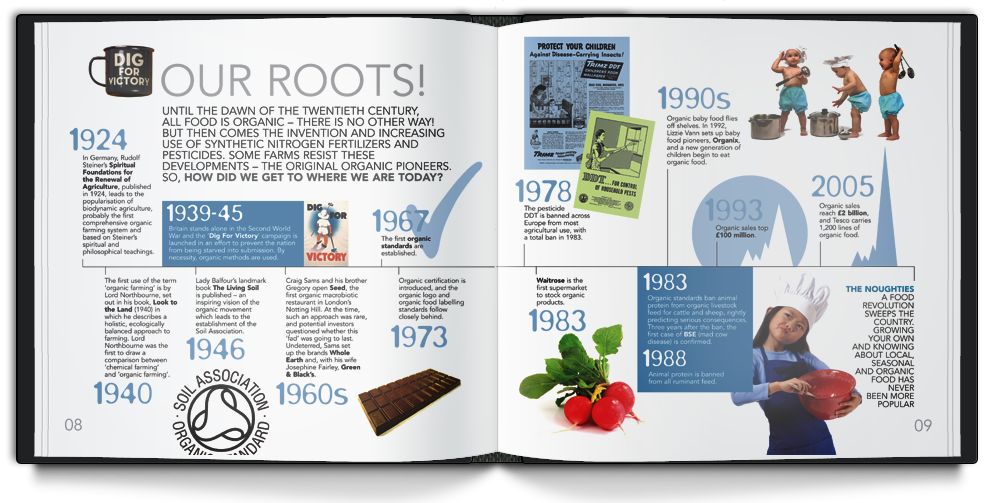

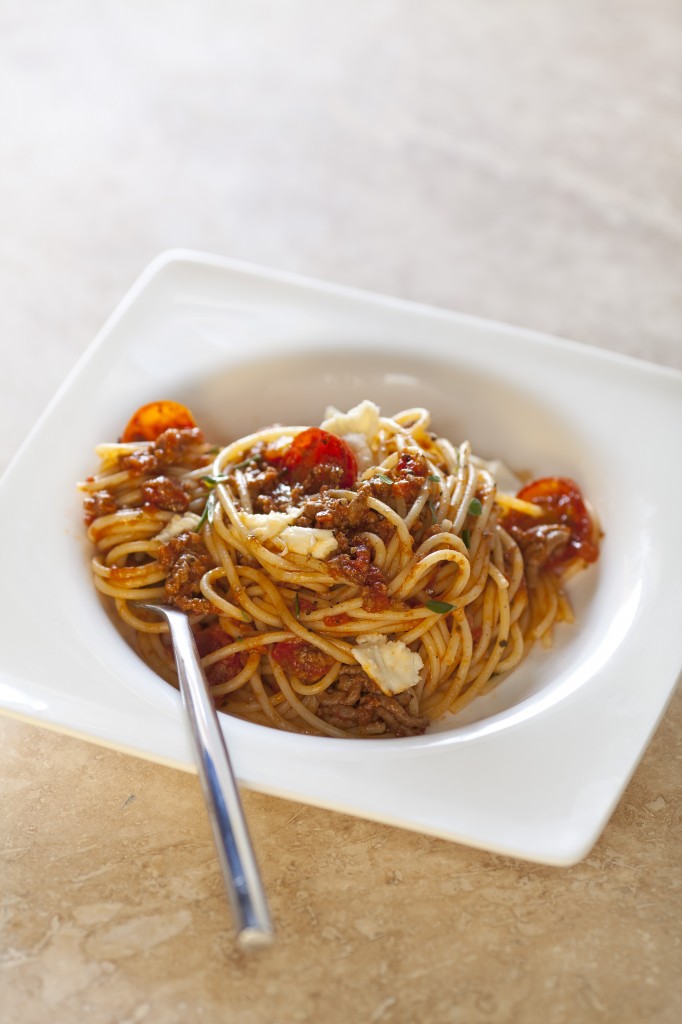
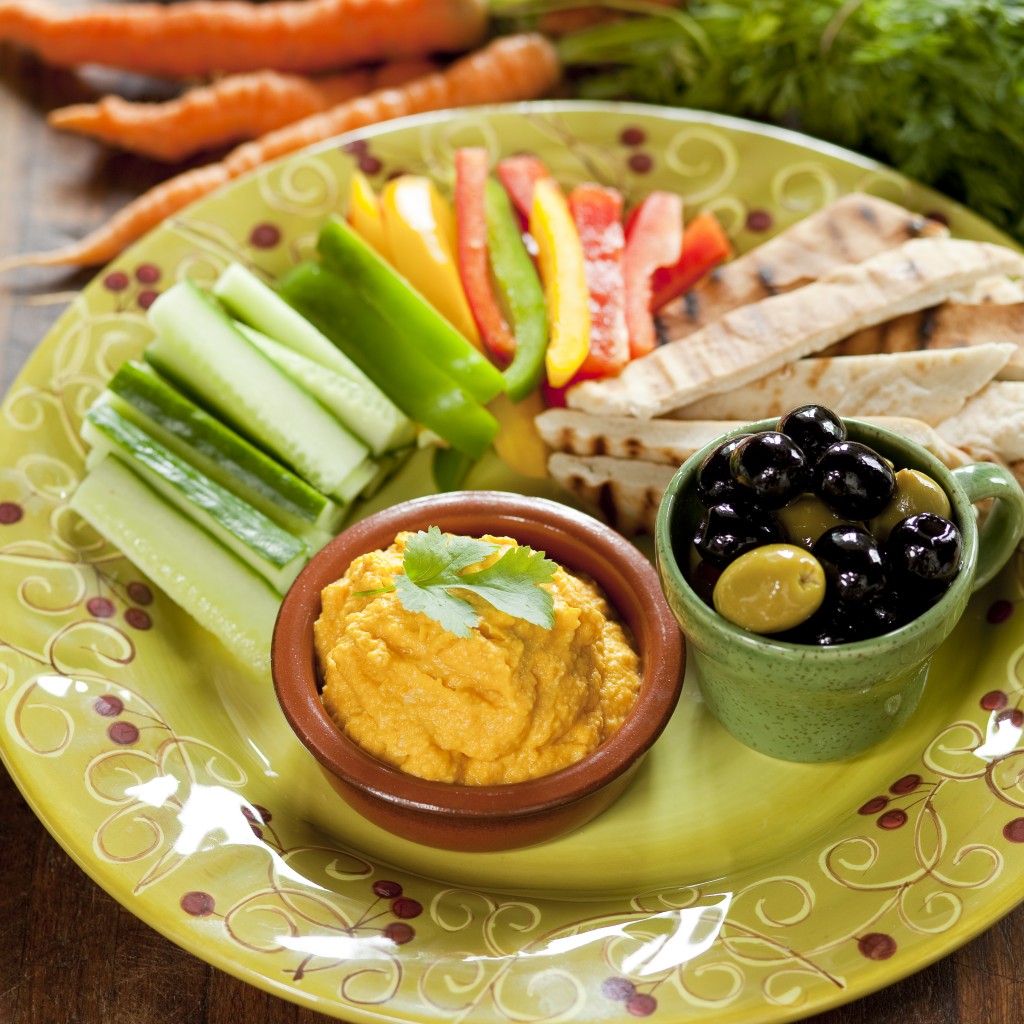

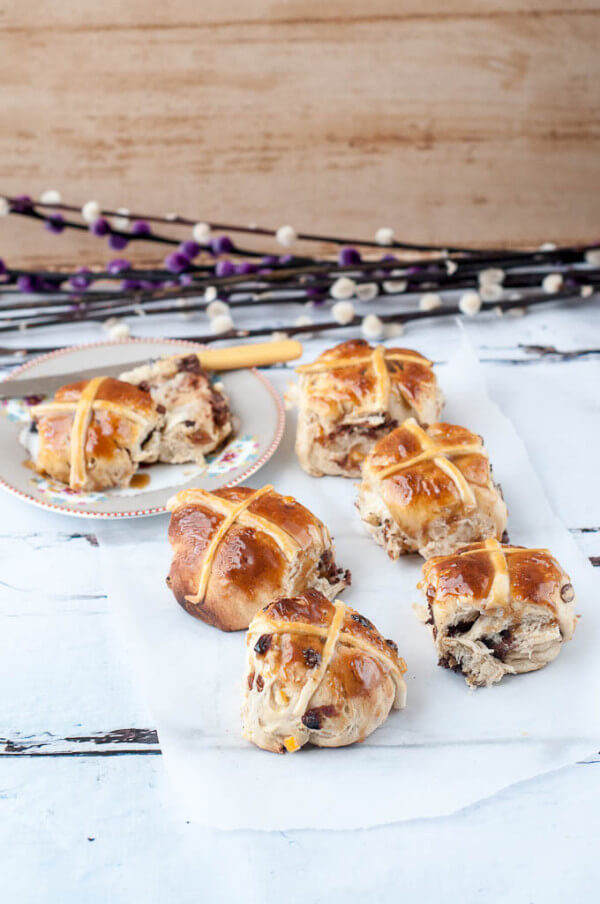
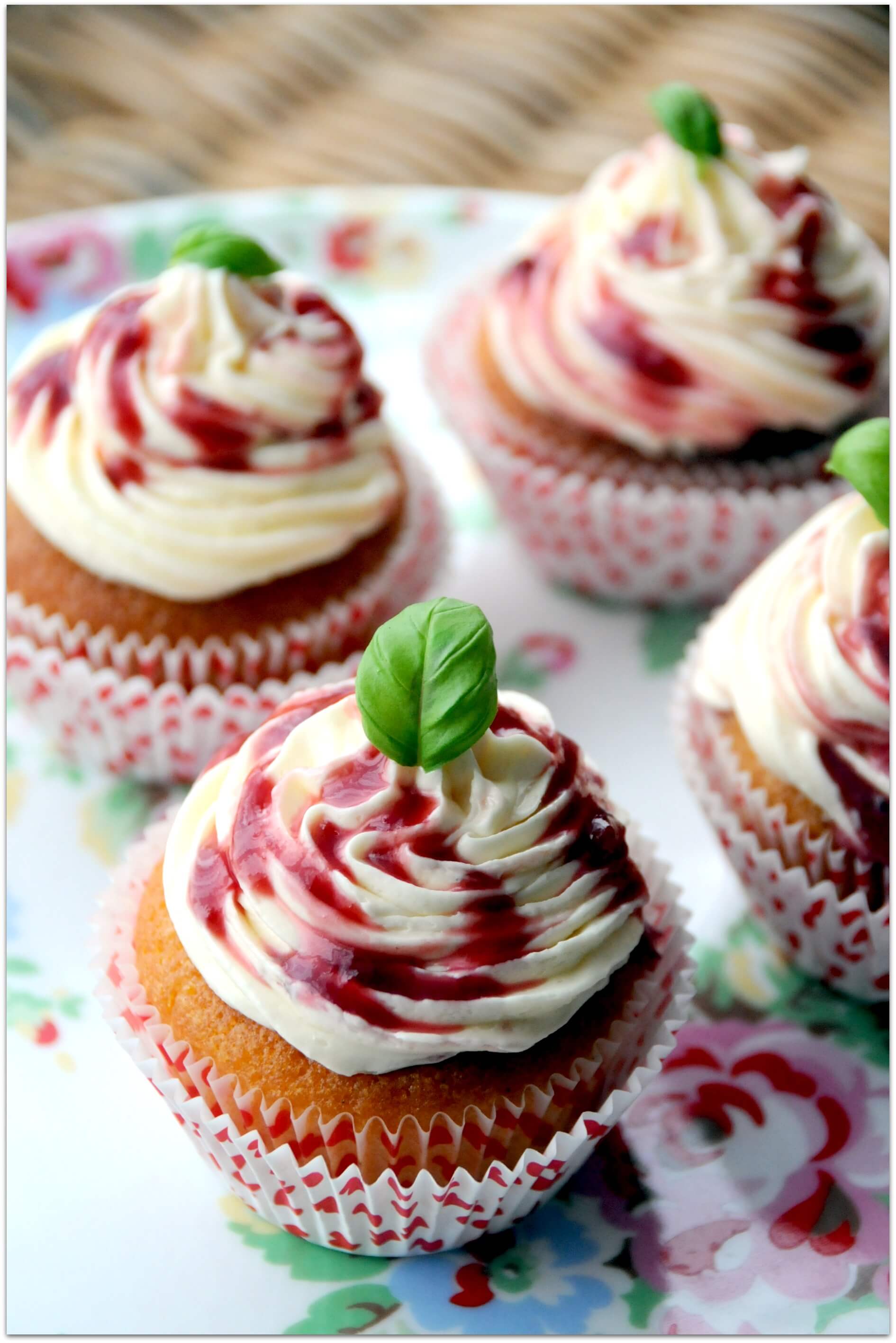

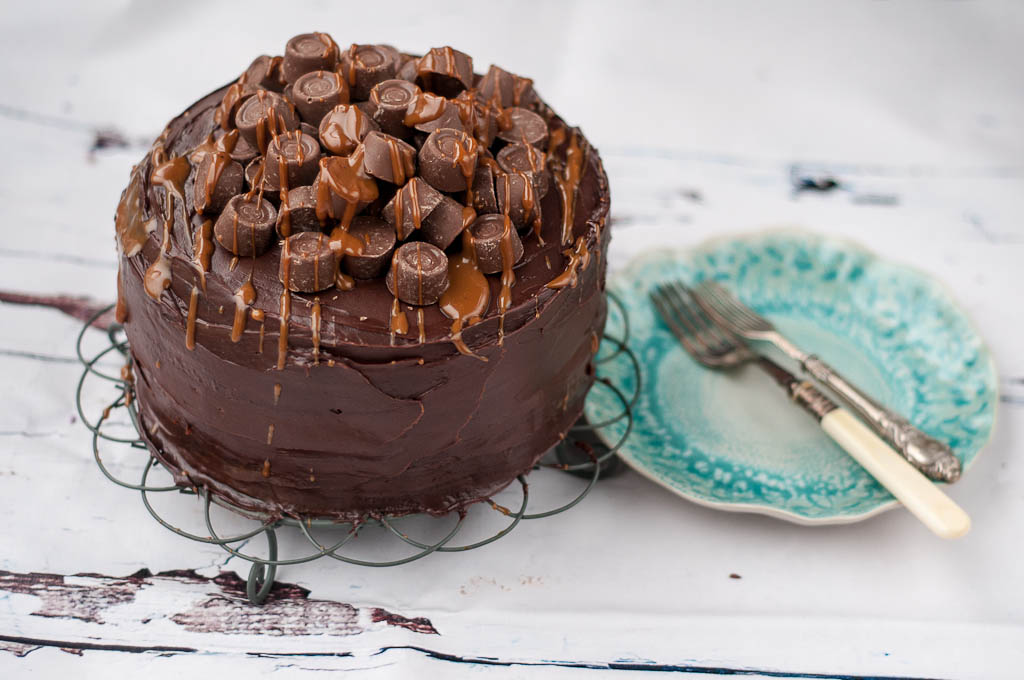
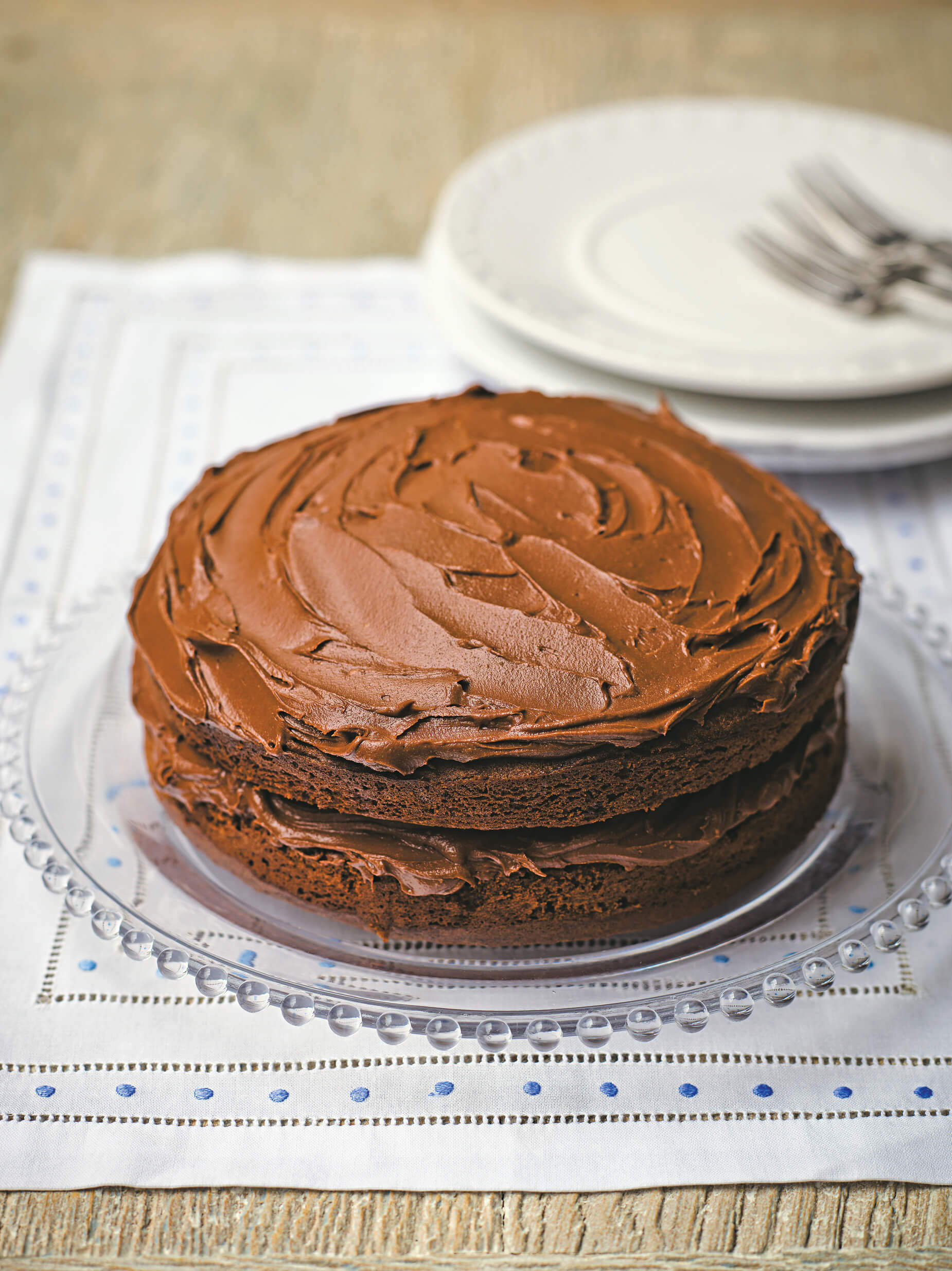
Hi Ren,
We have four chickens which roam around in the garden. The eggs are delicious and the chickens are happy! We have also changed our front garden bed into a veggie patch and if we are going to buy plants now they will be something we can get food from. Besides the fact that we know the fruit and veg are organic, it is great for the kids to be involved with the planting , watering and collecting eggs. Our snow peas rarely make it to the table as we tend to eat them as soon as we see some there!
I should also add that I am in Australia which means tomatoes tend to just appears and go wild with no care except watering. Other veggies however suffer under the hot dry summer and wither away with the hot wind.
Great post Ren. I’ll try not to go off into a rant as I feel quite strongly about this subject. I’ve tried to eat mostly organic all my life, even though money has been very tight as I believe it’s the only way forward for long term food security. I’m a member of the Soil Association, which is the only certifying organic body I really trust. It is expensive though so not everything I buy is organic, but staples such as milk, butter, eggs, veg, flour, oil (and most chocolate). I do, however, contest the assertion that organic tastes better – I’ve had delicious conventionally grown carrots and tasteless organic ones, it depends on freshness, variety, growing conditions etc Anyway, enough of that, I could go on 😉
Hi Choclette, thanks! The Soil Association sounds like a good place to look up, will include a link to that in my post too. I’m mostly the same with milk, eggs, and veg. I usually buy locally milled flour too, which is organic. And I agree about the taste, it does vary. Once I bought some organic carrots which tasted delicious but stayed hard no matter how long I cooked them for!! Then I read that they were an organic ‘crunchy’ variety! Anway, thanks for commenting, it’s an interesting topic!
How uncanny, I was looking through my copy of this book this evening! I have had it for a few weeks now and haven’t looked through it properly yet.
I do buy my meat organic (when it is available, because it not always is), milk, eggs, carrots (I read something somewhere once about carrots absorbing chemicals more than any other vegetable) and try to buy as much other food as I can organic, although sometimes the cost is prohibitive. I do have an apple tree which is organic, vines (therefore organic grapes which are tiny and contain seeds so not so good to eat but fine for making juice and jelly), grow tomatoes, tried to grow carrots but something ate them as soon as they started to grow!
I have my name on a list for an allotment, but could be waiting years for one.
When talking to others who don’t buy organic, they seem to miss the point about the benefits, so much is said about the taste being better when the only reason I buy it is for the lack of chemicals and the welfare of the animals – not that I don’t want my food to taste good, just that I personally don’t find the taste really any different, maybe it’s just my tastebuds.
The biggest problem I think that we face is GM foods – the sooner we get rid of them, the better.
Will definitely be trying this cake.
Morning Jennifer, thank you so much for your comment. I am just about to make the cinnamon-spiced yogurt pancakes for breakfast since it’s half term!
Yes, it seems a lot of peope buy organic carrots! How wonderful that you have vines, that’s unusual. I tried growing some tomatoes this year and they were ok, but I just don’t think we ever really get enough sunshine to make them taste truly spectacular! I will try again though.
Allotment waiting lists are so long these days, I think about five years in my town!
I agree about the taste factor, I think buying veg in season gives yopu the best flavour of all, whether organic or not. But I suppose with organic you are getting the added assurance of quality and sound farming methods.
Agree too on the issue of GM foods! I hope you enjoy the book, and the cake! Thanks for stopping by :-))
I love the new look Ren. Your blog looks fabulous.
I have this book too. I have to go back to it and make that cake it looks amazing. I am tempted to run into the kitchen right now. Will bookmark it. Great post 🙂
Aah thanks Jac, glad you like it. Still miss my old home from time to time but am getting used to WordPress now!
There are some lovely recipes in the book and I like the section at the back which is divided into seasons the best. The truffles on the page after the cake look delicious too!
I think besids thinking organic, we should be thinking local seasonal food. I’m a student surviving on a budget, but I find I can get very good quality produce from the farmers’ market (I even work there on weekends actually!) A lot of the farmers have very good farming standards even if they are not certified organic, and the vegetables I get last me sooo much longer than the ones I get from supermarkets!
Hello Shu Han, yes, that is what I try and do, buy veg from Farmers’ market or the regular market stall we have in our town, and if you go towards the end of the day they often sell produce for even less and are open to deals! You are right, I think the certification regulations are very hard to adhere to so many farming methods now are better, i.e pesticide free, but not necessarily certified organic. Thanks for your comment 🙂
Ren,
I haven’t a hope in jelly of buying organic unless it’s on offer, which the meat often is in Waitrose. My answer to this debate is that I now grow my own at my allotment and do not use any pesticides. Ic
With 3 kids & 1 income I’m afraid organic is not an option……
Hi Laura, yes, I think the problem is not that we wouldn’t all choose to buy organic if we could, but the the cost is very often prohibitive. Having said that, by growing your own produce on your allotment you’re already doing a heck a lot more than most of us to ensure that we don’t eat food full of pesticides! Thanks for commenting x
I always make an effort to buy organic. One thing I like about getting carrots from Abel and Cole is that they come with soil still on them! There is something too clinical about getting carrots from supermarkets that have been washed and prepared for you.
Hi Paul, this is true and you make a very good point – getting a weekly veg box delivery is a really good way of getting organic food. I too like the fact that vegetables arrive complete with soil!